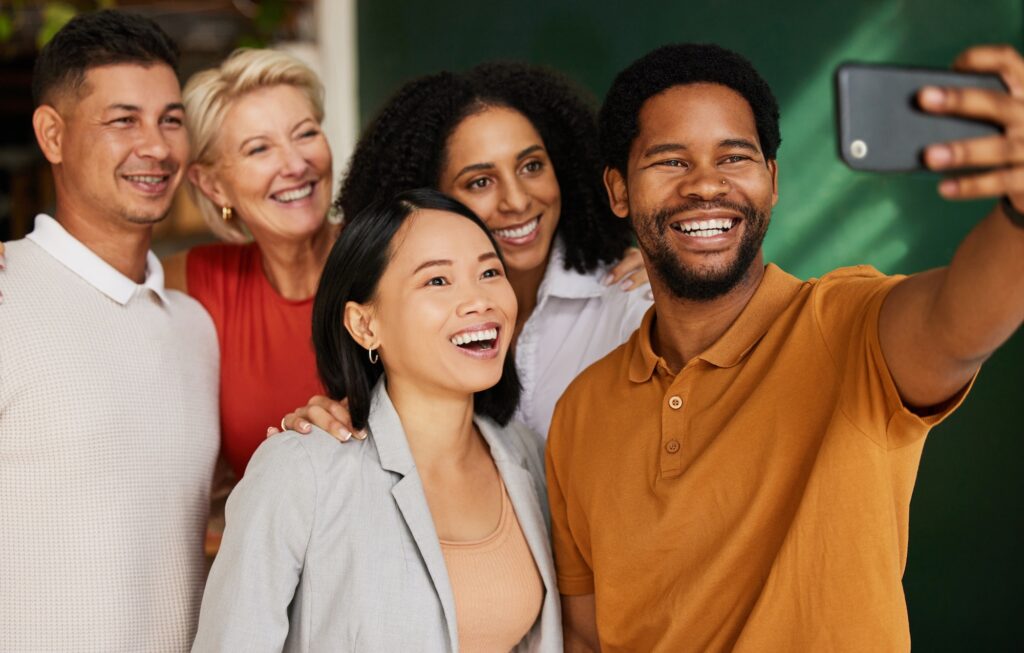Social media has become an integral part of our lives. According to the Digital 2022 Global Overview Report, there are 4.62 billion active social media users, and the world is growing and moving faster than ever before. It has transformed the way we interact with each other and has revolutionized the way we communicate. Social media platforms such as Facebook, Twitter, Instagram, LinkedIn, and others are used by billions of people every day, making them a powerful tool for businesses and event organizers. In this article, we will explore the benefits of using social media in events and how it can enhance the overall experience for attendees.
Promoting Your Event
Promoting events through social media has become a crucial element of event marketing. Social media provides an excellent opportunity to reach a vast audience at a low cost. By creating a solid social media strategy, event organizers can promote their events and engage with their audience in real time. Social media platforms allow event organizers to connect with potential attendees by sharing updates, creating engaging content, and leveraging paid advertising. In this generation, social media has become an indispensable tool for promotion, making it easier than ever to increase attendance and build buzz around events.
Engaging with Attendees
Providing a platform for event organizers to connect with attendees before, during, and after the event, social media creates a more personalized and interactive experience. Social media platforms allow event organizers to post updates about the event, including schedules, speaker bios, and session details. Attendees can use these platforms to engage with organizers and other attendees, ask questions, and share their experiences. This real-time interaction allows attendees to participate actively in the event, whether they are physically present or not. Social media also enables organizers to create polls, surveys, and other interactive activities that engage attendees and provide valuable feedback, making the event more memorable and impactful.
Creating a Sense of Community
Social media can create a sense of community among attendees. By encouraging attendees to use a specific hashtag or creating a dedicated event page, you can foster a sense of connection among attendees. This real-time interaction provides a sense of community among attendees, regardless of their physical location. This sense of community helps to create a more immersive and engaging event experience, fostering a sense of belonging and making attendees feel like they are part of something bigger than themselves.
Creating Sponsorship Opportunities
Revolutionizing the way events are promoted and marketed, social media creates new sponsorship opportunities for businesses of all sizes. With the ability to reach millions of people instantly, it provides a cost-effective and powerful way for brands to connect with their target audience. Events can leverage these platforms to attract sponsors and create partnerships with businesses looking to increase their exposure and engagement with potential customers. Social media offers a variety of sponsorship opportunities, such as sponsored posts, branded content, and influencer marketing, allowing businesses to tailor their marketing approach to suit the needs of the event and their target audience. Overall, social media has become an essential tool for events looking to secure sponsorship and provide valuable exposure for their sponsors.
Measuring the Success of Your Event
Social media analytics can provide valuable insights into the success of your event. By tracking metrics such as engagement rates, reach, and impressions, you can measure the impact of your social media strategy and identify areas for improvement for future events. This can help you optimize your social media strategy and improve the overall attendee experience.
Best Practices for Using Social Media in Events

Here are some best practices for using social media in events:
- Create a dedicated event page or use a specific hashtag to promote your event.
- Use social media to engage with attendees before, during, and after the event.
- Encourage attendees to share their experiences using a specific hashtag.
- Use social media analytics to measure the success of your event.
- Partner with sponsors to create sponsored posts and ads.
- Use social media to gather feedback from attendees and improve the event experience.
- Share live updates, photos, and videos from the event to keep those who couldn’t attend up to date.
In conclusion, social media is a powerful tool for event organizers. By using social media platforms such as Facebook, Twitter, Instagram, and LinkedIn, event organizers can promote their events, engage with attendees, create a sense of community, create sponsorship opportunities, and measure the success of their events. By following best practices and optimizing their social media strategy, event organizers can enhance the overall attendee experience and create a loyal following for future events.
At Eventpedia, we integrate with social media platforms to make your event app experience enjoyable and convenient to use. Ask us about our platform integrations to help make your events a success!

